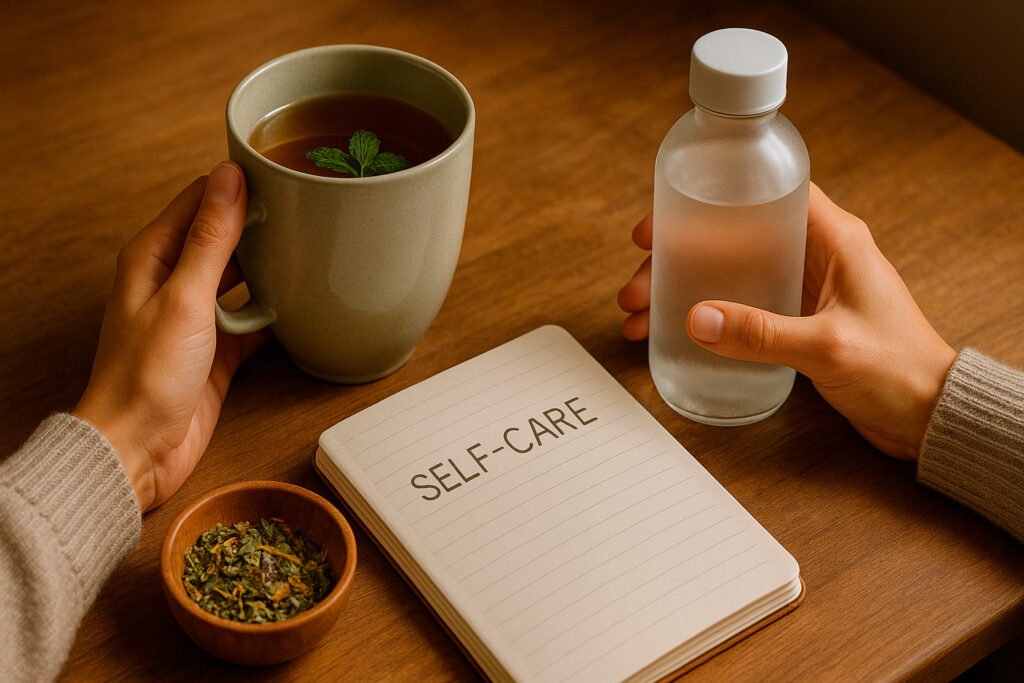Page Contents
ToggleAre you experiencing hot flashes that leave you feeling overwhelmed and searching for answers? You’re not alone in this journey. As many as three out of four women experience menopause symptoms that can significantly impact their daily lives, from sudden heat surges to sleep disruptions and mood changes. Understanding these symptoms and discovering effective natural relief strategies can transform your experience during this important life transition.
Menopause represents a natural biological process, yet the symptoms don’t have to control your life. With the right knowledge and practical approaches, you can navigate this phase with confidence and comfort.
For some women, this may also include natural supplements like MenoRescue, designed to help balance hormones and ease common menopause discomforts.
Understanding Common Menopause Symptoms
The transition to menopause, called perimenopause, brings changing hormone levels that affect your body in multiple ways. These hormonal fluctuations create a cascade of symptoms that can begin years before your periods actually stop.
Hot flashes remain the most widespread symptom, affecting up to 75% of women. These sudden feelings of intense heat typically start in your upper body, causing your face and neck to redden while red blotches may appear across your chest, back, and arms. Heavy sweating often accompanies these episodes, followed by cold chills.
Recent research reveals that hot flashes can continue for up to 14 years after menopause, making effective management strategies essential for long-term comfort.
Sleep problems frequently plague women during this transition. Low progesterone levels make falling and staying asleep challenging, while declining estrogen contributes to night sweats that disrupt rest. Many women also develop urinary symptoms requiring multiple nighttime bathroom trips.
Many women are turning to targeted supplements for additional support during this transition – our detailed MenoRescue analysis breaks down the science behind one promising option.
Natural Relief for Hot Flashes: Management Strategies
Managing hot flashes naturally requires a multi-faceted approach that addresses triggers while providing immediate relief options.
Track your triggers by maintaining a detailed journal of what precedes each episode. Common triggers include spicy foods, alcohol, caffeine, stress, and exposure to warm environments. Once you identify your personal triggers, avoiding them becomes your first line of defense.

Immediate relief techniques can significantly reduce hot flash intensity and duration:
- Keep ice water nearby and drink it when you feel an episode beginning
- Remove clothing layers – dressing in easily removable layers provides quick temperature control
- Use strategically placed fans at your bedside and workplace
- Practice slow, deep breathing exercises to signal your body to relax and potentially shorten episodes
Weight management may provide additional relief, as research indicates hot flashes tend to be more severe in women with overweight or obesity.
You might also consider targeted herbal formulas such as MenoRescue, which may help reduce the frequency and intensity of hot flashes over time.
Addressing Sleep Problems Naturally
Quality sleep becomes increasingly important during menopause, yet hormonal changes make it more elusive. Natural approaches can significantly improve your sleep quality without relying solely on medications.

Exercise regularly – but timing matters. Physical activity promotes better sleep, but vigorous exercise close to bedtime can have the opposite effect. Studies specifically show that yoga and gentle stretching may help reduce hot flashes while promoting relaxation.
Create optimal sleep conditions by maintaining a dark, quiet, and cool bedroom environment. Use your bedroom exclusively for sleep and intimacy when possible, avoiding work or entertainment activities in this space.
Establish consistent routines by going to bed and waking at the same times daily, even on weekends. Avoid daytime napping, which can interfere with nighttime sleep quality.
Manage evening habits carefully:
- Avoid large meals, alcohol, and smoking before bedtime
- Limit caffeine consumption after noon
- Reduce screen time near bedtime, as blue light signals your brain to stay alert
- Try warm, caffeine-free beverages like herbal tea or warm milk

Another approach some women find helpful is adding a supplement like MenoRescue to their nighttime routine, as it contains ingredients that may support calmer sleep during menopause.
Natural Solutions for Vaginal Dryness
Declining estrogen levels during menopause cause vaginal dryness, making vaginal tissues become thinner and leading to discomfort, itching, and pain during intimacy. Natural and over-the-counter solutions can provide significant relief.
Vaginal moisturizers used every few days help maintain tissue hydration and overall comfort. These products work differently from lubricants by providing ongoing moisture rather than temporary lubrication.
Water-based lubricants applied before or during intimacy can make sexual activity more comfortable and prevent small tears that increase infection risk.
Regular sexual activity or self-stimulation helps maintain vaginal tissue health by promoting blood flow to the area.
Additionally, whole-body hormone balance — supported through lifestyle changes and supplements such as MenoRescue — may help address dryness from the inside out.
Supporting Mental Wellness and Memory
Menopause symptoms extend beyond physical changes to affect cognitive function and emotional well-being. Up to two-thirds of women experience memory problems or difficulty concentrating during perimenopause.
Stay mentally active through challenging activities like crossword puzzles, learning new skills, or taking classes. Mental stimulation may help maintain cognitive function and focus.

Maintain social connections by joining groups or clubs focused on activities you enjoy. Social interaction not only provides emotional support but may help delay memory loss and reduce dementia risk.
Manage mood changes through:
- Prioritizing seven to nine hours of sleep nightly
- Engaging in regular physical activity
- Limiting overwhelming responsibilities
- Finding positive stress management techniques
- Connecting with support groups of women experiencing similar transitions
Maintaining hormonal balance through nutrition, stress management, and supplements like MenoRescue may also play a role in supporting memory and emotional stability during menopause.
When to Seek Professional Guidance
While natural approaches provide excellent relief for many women, certain situations warrant professional medical consultation. Schedule an appointment with your healthcare provider if:
- Symptoms significantly interfere with your daily activities or quality of life
- You experience bleeding or spotting after not having periods for a year
- Memory problems or mood changes affect your ability to function normally
- Urinary problems disrupt your sleep or daily routine
- You’re interested in exploring all available treatment options, including hormone therapy or natural supplements that might help ease your transition. Speaking of natural supplements, our comprehensive MenoRescue review examines one of the most popular menopause support formulas available today.
Remember that urinary incontinence and severe mood disruptions aren’t normal parts of aging and effective treatments exist.
Creating Your Personal Relief Strategy
Every woman’s menopause experience is unique, making personalized approaches essential. Start by implementing one or two strategies that address your most bothersome symptoms, then gradually add additional techniques as needed.
Keep a symptom diary to track what works best for your specific situation. This information becomes invaluable when discussing treatment options with healthcare providers and helps you maintain the most effective natural relief strategies.
Menopause symptoms don’t have to diminish your quality of life. With patience, the right natural approaches, and professional guidance when needed, you can navigate this transition with comfort and confidence while maintaining your health and vitality.
Adding MenoRescue to your menopause relief plan may give you an extra layer of natural support as you work toward feeling your best.
Sources
This article was inspired by and adapted to better serve the readers of Best Natural Health Products from “Menopause symptoms and relief”. Office on Women’s Health, U.S. Department of Health and Human Services. Available at: https://womenshealth.gov/menopause/menopause-symptoms-and-relief. Accessed on: June 16, 2025.
Sarah Jenkins is a Senior Wellness Researcher and former science educator. She specializes in "Ingredient Provenance"—decoding complex clinical studies to ensure every product is safe and historically verified. Sarah translates dense medical data into actionable advice for families and individuals.
